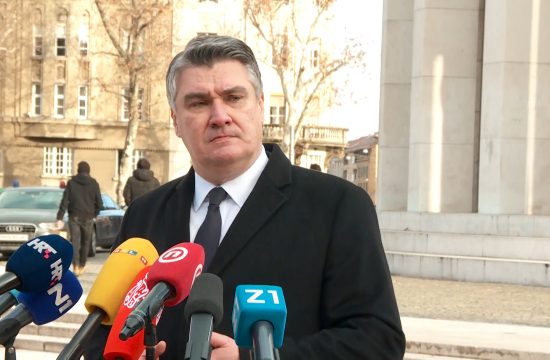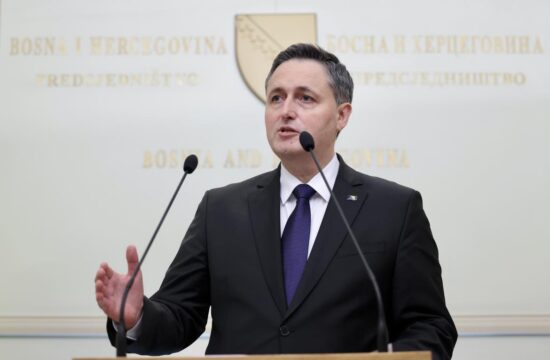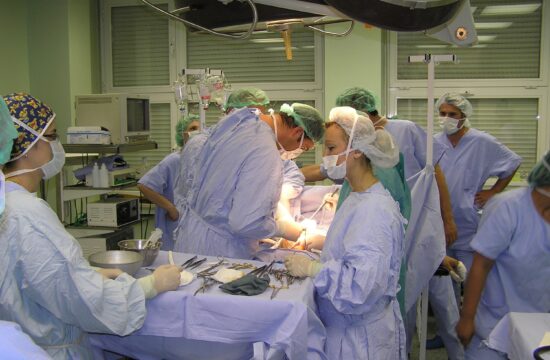
By defending Bosnia and Herzegovina, the European Union is defending its own values, EU High Representative for Foreign Affairs and Security Policy Josep Borrell said in an exclusive interview with N1 at the end of his Western Balkans tour, during which he visited North Macedonia, Albania and Bosnia and Herzegovina.
Speaking in N1's Pressing, Borrell said that Europe considers Bosnia and Herzegovina a part of the European perspective and encourage the country to continue working to advance on the EU track.
The EU's senior official spoke about the situation in the country and the region as well as the Russian aggression on Ukraine and possible implications on the Western Balkans.
Asked if European Union is ready to prevent Russia after its brutal aggression against Ukraine to cause destabilizing in BiH and the region, he replied:
“Russia will try to intensify its already strong influence in the region. And the war will have consequences for everybody, not only for the Ukrainians. The war will send shock waves in the neighbourhood and worldwide,” he stressed, adding that no doubt it will affect the Western Balkans as well.
According to Borrell, it is necessary to explain to the citizens what is really happening and what will the consequences be.
Next steps, he continued, will be activating the process of getting closer all the six Western Balkan countries to the path to Europe.
He noted that all countries he has visited these days have the same request – to get closer to the EU, and added that these countries first need to do their their tasks and implement reforms, which mean independent judiciary, fight against corruption, etc.
“They need to overcome the difficulties from the past. They need reconciliation, economic prosperity, they need to build strong economy, strong democracy,” he stressed, adding that these are prerequisites not only to become a member state but also to become a better society.
Borrell also pointed out the necessity of building a more solid civil society in Bosnia and Herzegovina, and the entire region, explaining that this whole matter is not about the politicians but also about citizens, who need to push for the matters such as reconciliation.
EUFOR reinforcement – a precautionary measure
The EU official also touched upon the reinforcement of the EU military forces in Bosnia and Herzegovina – EUFOR.
Asked why would citizens trust the EU when it says EUFOR is here to guarantee safety, considering its shameful role in the war of the 1990s, Borrell said there is no hidden agenda.
He noted that the mission has been reinforced with nearly 600 soldiers.
“They are here to provide security, just in case,” he stressed, adding that hopefully they will not need to act.
Borrell further explained that the reinforcement of the EUFOR troops comes as a precautionary measure and “it doesn't mean I am worried about something that could happen in the immediate days.”
“Precaution is a precaution. Certainly, the war in Ukraine has created a different situation on security around Europe. And you are going to hold elections soon. So I think this measure is nothing of a warning but a precaution that is in favour of peace and stability in BiH,” he added.
Asked if the EU will increase further if needed, he replied:
“If needed, as you said, if needed.”
Borrell refused to speak about potential deployment of NATO troops to Bosnia and Herzegovina, noting that this is a question for NATO officials, but he said, as far as he knew, there was no such a plan on agenda.
‘This is the road that goes nowhere’
Later during the interview he reflected on his visit to Sarajevo and the meetings he held with Bosnian senior officials and political leaders.
He was asked to elaborate on the recent letter he sent to BiH Presidency member Milorad Dodik, in which he warned about consequences and considering the use of available instruments if the representatives of the Serb-majority entity, Republika Srpska, do not return to the state institutions, whose work they have been boycotting for months.
“Certainly we have sanctions in our toolbox. Certainly there is also the possibility of blocking the funding,” Borrell said, reminding that the European Commission has already suspended the financing of the implementation for two infrastructural projects in Republika Srpska – the decision which can be easily reversed and is a matter of going back to the state institutions.
“This is the road that goes nowhere,” he added.
Asked if Dodik promised the return in full capacity to the state institutions, the EU official replied that Dodik's answer was not “certainly according with my wishes.”
Asked if the return to the state institution would be enough or if Dodik will have to give up on his attacking or undermining of Bosnia and Herzegovina, he said:
“The disintegration of Bosnia and Herzegovina, the dissolution of Bosnia and Herzegovina, the separatist tendencies, the division of the country brings to nowhere. This is the message, this is the clear message that I would like to pass, and thank you for putting this question. It's not just one law, it's not just creating an institution apart form the institutions of Bosnia and Herzegovina, it's a general tendency of undermining the capacity of the country to remain united.”
As for possible sanctions against Dodik, Borrell said that the EU prefer not to talk about sanctions but about dialogue. He noted that freezing of the financing of the two projects can be considered a sanction, not a personal one but something that is not making a favour.
“We are not asking for more confrontation, we are asking for keeping the respect for the Constitution of Bosnia and Herzegovina, not pulling out the competence of the whole structure of the state and not advancing in any process of disintegration of the country or separatist tendencies,” he underlined.
Asked if elections will take place in BiH if the electoral legislation is not changed, he briefly replied that in order to hold elections in line with the stances of the Council of Europe and the Venice Commission a new law is needed. However, he added that the electoral law is not the only thing worrying but many other things that worry citizens as well.
“Please, have a broader approach to the political problems of your country,” he concluded.




